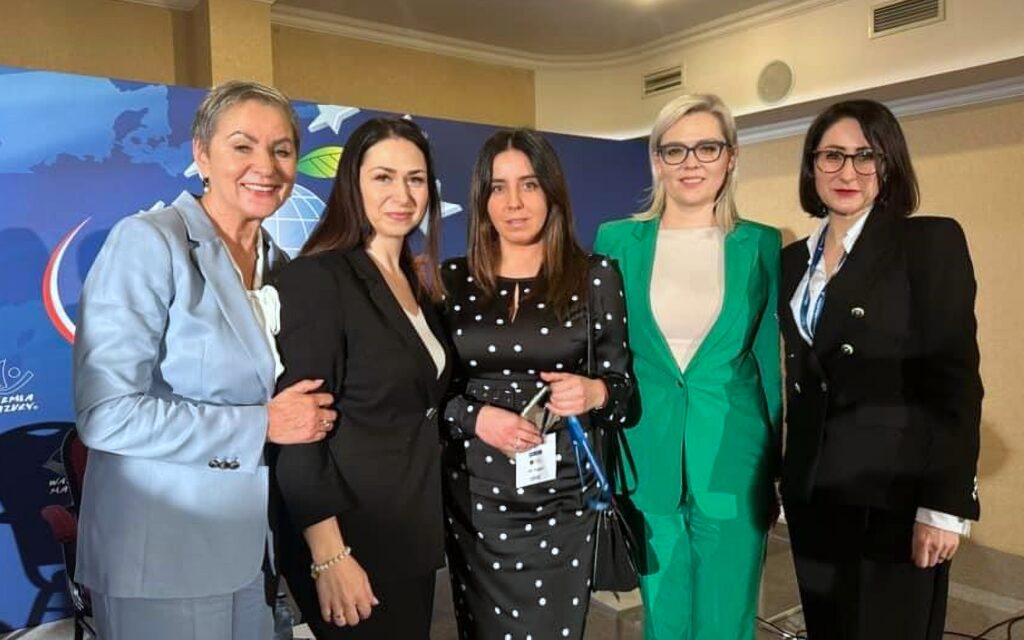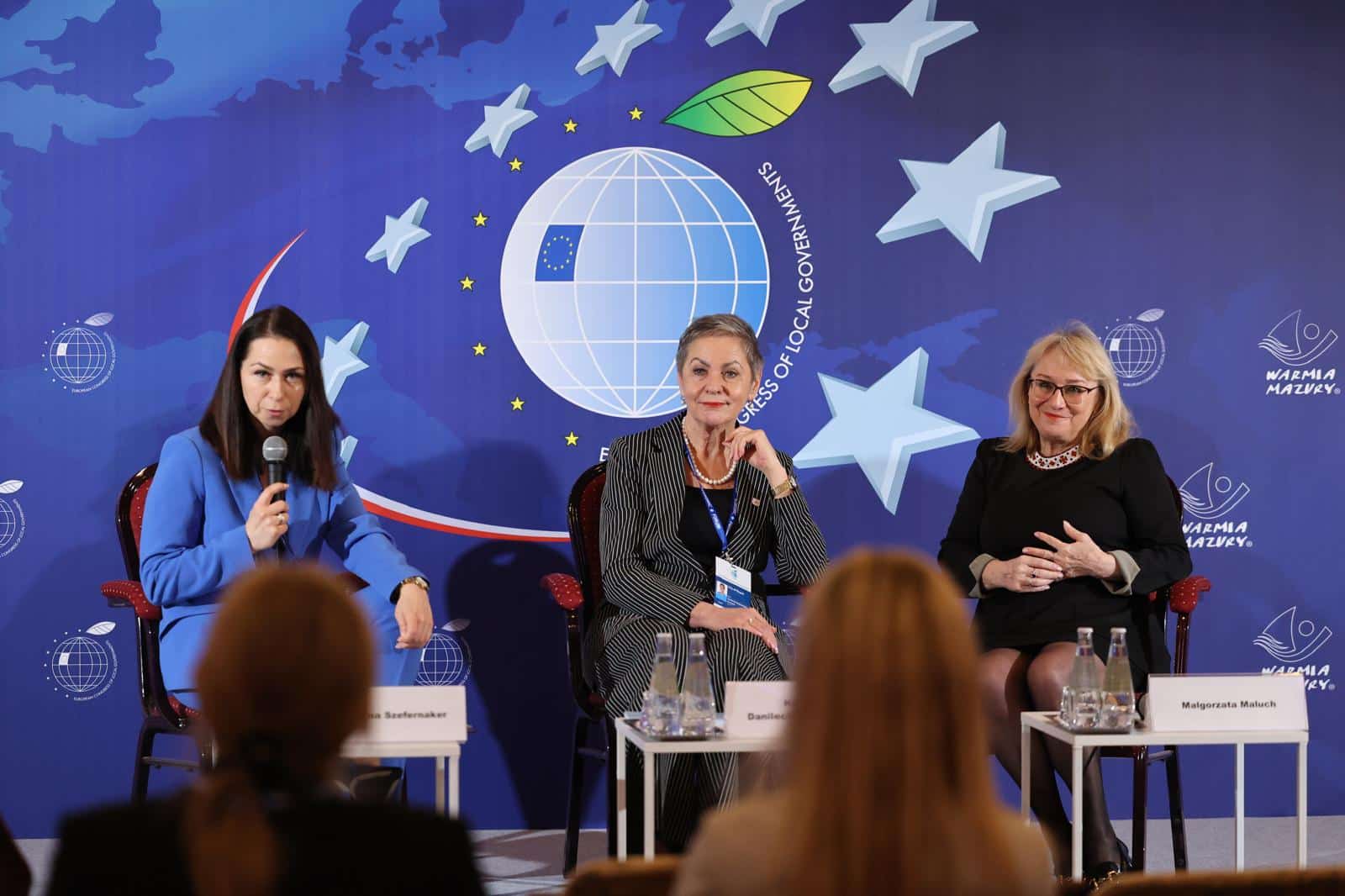Women in Local Government: Seeing Communities as Extended Families
Women who manage cities or municipalities look at local government as an extended family in which every member of that family, every resident, has their own needs

Women naturally read these needs very well and can address them effectively,” Magdalena Szefernaker, author of the book Samorząd na Obcasach [Local Government on the Heels], privately an active wife and mother, told in an interview. March 8 marks Women’s Day.
Magdalena Szefernaker stressed that only 12 percent of the top positions in Polish cities or municipalities are held by women. Out of almost 2,500 municipalities, about 300 are governed by female representatives. Women’s participation in governance is higher at lower levels of government.
Magdalena Szefernaker: now is women’s time
According to Szefernaker, “Women are increasingly coming to the fore. They have more and more to say, they are increasingly better educated, and they have the experience and aptitude for a career.” However, “there is still a lot of work to be done” for them to gain a better professional position.
Studies show that local governments with ladies in charge are much better at recognizing and meeting the needs of different social groups. Magdalena Szefernaker does not doubt that this is due to their natural predispositions. “Women’s qualities, such as empathy, sensitivity, flexibility, multitasking, and sometimes maternal concern, are desirable in local government. This translates into a better understanding of the needs of people at different stages of development, from the youngest, through students, entrepreneurs, to seniors or the sick,” Szefernaker stressed.
What’s more, the author of the book on women local government officials pointed out that women perform well not only in areas considered more appropriate for women, like building nurseries and kindergartens or caring for the sick and elderly. They also achieve excellent results in multi-million dollar investments or raising funds for the municipality to increase its budget. “Women not only match men in this but often manage more efficiently than they do,” the interviewee pointed out.
However, women still have to fight stereotypes, but they do it effectively. “The examples in my book are proof of this. It is not gender that should determine who the mayor of a place is, but first of all competence, education, experience, and commitment to the job,” said Szefernaker.” In breaking stereotypes, the courage of female representatives is essential. „It is important for women not to be afraid to take on new challenges, to dare to step out of their comfort zone. Unfortunately, it is apparent that ladies sometimes prefer to be in the background and do not fully believe in their abilities. Although the facts speak in our favor – Polish women are well-educated and often have the necessary competence and experience to take the highest positions. Therefore, dear ladies, let’s not be afraid to reach for the stars!” appealed Szefernaker.
Family versus work – the right balance
Some of the women Magdalena Szefernaker interviewed for the book are not only wives and mothers but now even grandmothers. Years later, they question whether they have managed to maintain the right balance between work and professional responsibilities. “They say they sometimes feel bad about not spending enough time with their children. This is a big challenge. When you are responsible for a city or municipality, you can’t afford to be at home with your child or for your family at every possible important moment. Working in local government is often a 24-hour job, including on weekends or holidays,” Szefernaker stressed.

The book’s protagonists unanimously emphasize how vital the support of loved ones, especially husbands, is in their lives. The same is true for Magdalena Szefernaker. “The person who helps me is my husband, although his work is also very absorbing. This model of support is the key to balancing family and professional life for me. My husband is strongly rooting for me in my professional development,” – Szefernaker said. She is also grateful for the support of her friends, parents, in-laws, and siblings.
According to Magdalena Szefernaker, women should not hesitate to delegate household duties to other family members. “I would like to appeal to ladies not to be afraid to share household duties with others,” she said. “For me, the role of mother is unique. It’s fulfilling and challenging, although I don’t hide the fact that my professional work also gives me great satisfaction. A fulfilled woman is also known to be a happy mother and family. So let’s give each other space so everyone can develop in the family and society, but let’s also help and support each other,” she stressed.
Grandmother – my idol
Magdalena Szefernaker has always been fascinated by courageous women, women of action who were able to defy various adversities. “I am convinced that at least these heroines from the book Local Government on the Heels are just such women because they risked a lot to get where they are. No one gave them any guarantees that they would succeed,” the interviewee pointed out.
Szefernaker dedicated her latest book to her grandmother. Indeed, she was her idol since childhood. “My grandmother was a mother of 13 children. That’s quite a challenge. In addition to taking care of the children and the home, she ran the farm because my grandfather worked in local government for 20 years, so it was a tough job for her,” recounted the author. Her grandmother instilled in her fundamental values: “the importance of family, faith in God and love of country.” “As a young girl, but also when I became a wife and mother, I was able to draw a lot from her,” she added.
____
The premiere of Local Government on the Heels took place in Poland on February 20. The book is a collection of interviews conducted by Magdalena Szefernaker with nine successful women who hold top positions in local government. Szefernaker is also the author of Mama na Obcasach [Mom on Her Heels].
Related

After Eight Days Jesus Arrived: Commentary by Fr. Jorge Miró
Jorge Miró
26 April, 2025
3 min

The Perspectivas del Trabajo Foundation is founded with the aim of promoting virtues for professional development
Exaudi Staff
25 April, 2025
2 min

Reflection by Bishop Enrique Díaz: Alleluia, alleluia
Enrique Díaz
20 April, 2025
5 min

Christ is Risen! Alleluia! Commentary by Fr. Jorge Miró
Jorge Miró
20 April, 2025
3 min
 (EN)
(EN)
 (ES)
(ES)
 (IT)
(IT)

